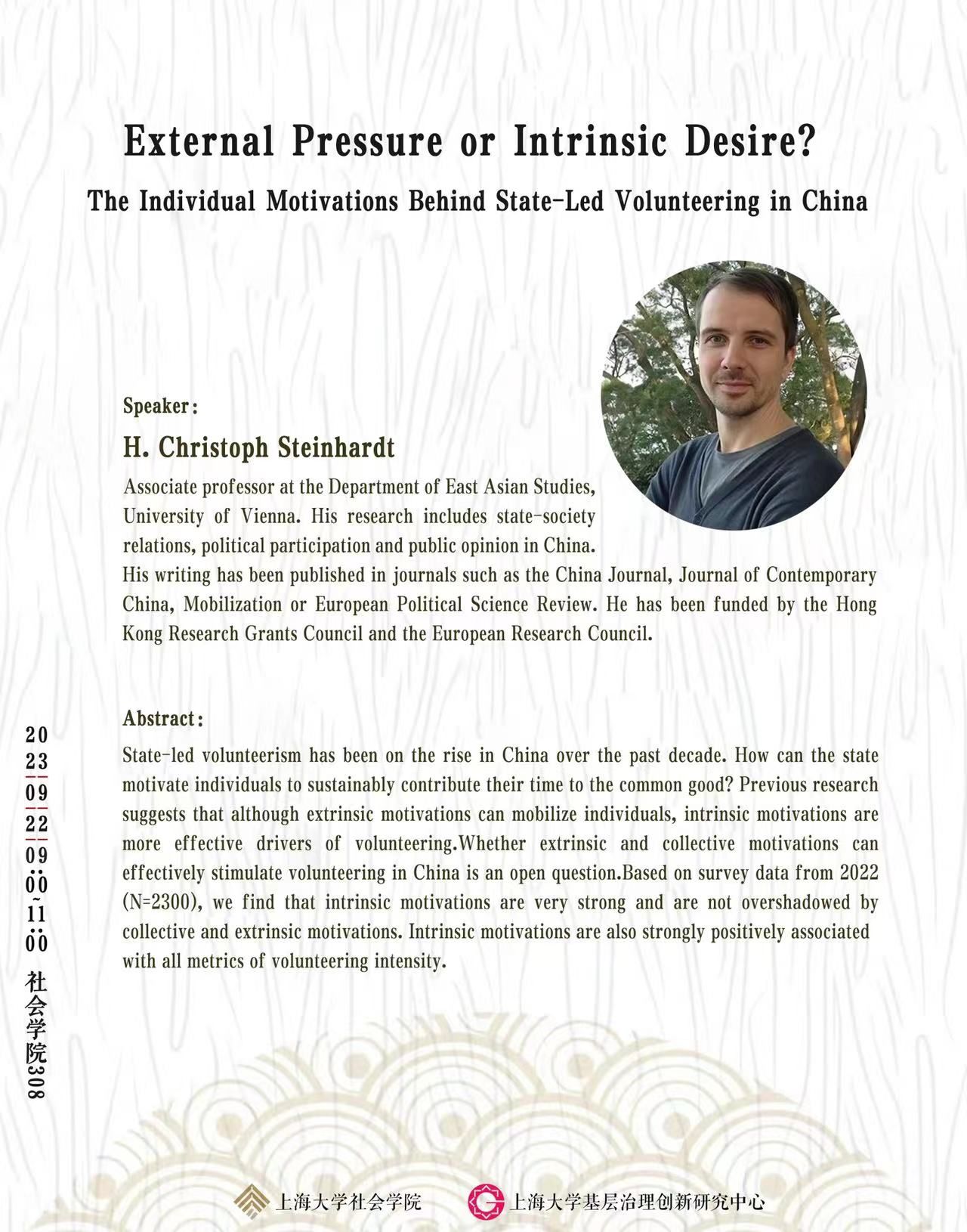
2023年第32講總第783講
題目👨🏿🎨:External Pressure or Intrinsic Desire? The Individual Motivations Behind State-Led Volunteering in China
地點:意昂3体育308室
時間🔡:2023年9月22日9:00-11:00
主講人🦨:H. Christoph Steinhardt is associate professor at the Department of East Asian Studies, University of Vienna. His research includes state-society relations, political participation and public opinion in China. His writing has been published in journals such as the China Journal, Journal of Contemporary China, Mobilization or European Political Science Review. He has been funded by the Hong Kong Research Grants Council and the European Research Council.
內容簡介🧑🏿🍼:State-led volunteerism has been on the rise in the People’s Republic of China (PRC) over the past decade. How can the state motivate individuals to sustainably contribute their time to the common good? Previous research suggests that although extrinsic motivations can mobilize individuals, intrinsic motivations are more effective drivers of volunteering. Theories of self-determination would predict that intrinsic motivations, tied to autonomy and self-development, would be low in China. In a collectivist society, collective motivations should eclipse individualistic ones. Moreover, the Chinese state incentivizes and controls volunteerism, offering rewards and sanctions through schemes like the Social Credit System (SCS). The provision of external incentives can undermine intrinsic motivations. Whether extrinsic and collective motivations can effectively stimulate volunteering in China is an open question.
Based on survey data from 2022 (N=2300), we examine these assumptions. We find that intrinsic motivations are very strong and are not overshadowed by collective and extrinsic motivations. Intrinsic motivations are also strongly positively associated with all metrics of volunteering intensity. Collective motivations have a weaker, albeit mostly positive, association with volunteering action. Extrinsic motivations display a mixed association with volunteering behavior, sometimes even veering into the negative. When volunteers are exposed to information about the SCS, their (perception of) extrinsic motivations (by others) increases, but it does not undermine intrinsic motivations.


